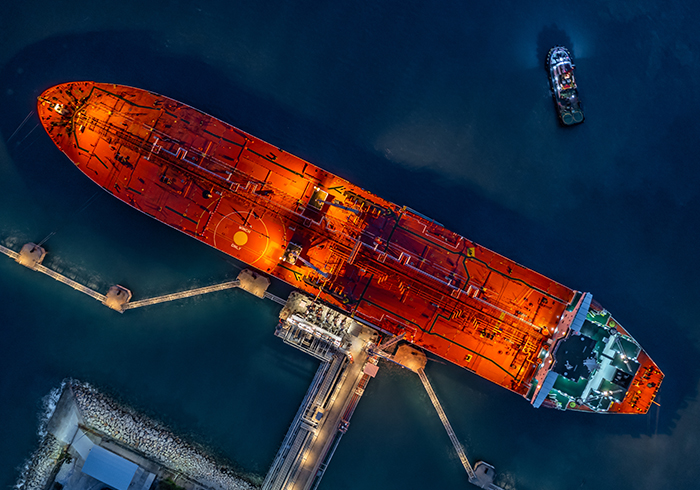A major US sanctions crackdown has laid bare the use of intricate, cross-border networks of traders, shipping companies and vessels used to facilitate the movement of Iranian and Russian oil, arms and other cargo.
The US Office of Foreign Assets Control (OFAC) announced on July 30 it was taking action against more than 100 individuals, entities and vessels used to transport Iranian or Russian-origin cargoes, a practice it says has generated tens of billions of dollars in profit for the two regimes.
OFAC says those targeted are part of a “vast shipping empire” controlled by Hossein Shamkhani, the son of Ali Shamkhani, a former Iranian military official and government minister. It said the designations were the largest such action taken since 2018.
Allegations against Shamkhani’s network include the shipment of missiles and other military goods from Iran to Russia in exchange for petroleum, which was then sold to overseas buyers, the authority says.
“The Shamkhani family’s shipping empire highlights how the Iranian regime elites leverage their positions to accrue massive wealth and fund the regime’s dangerous behaviour,” says US treasury secretary Scott Bessent.
Of the 73 companies newly sanctioned by the US, around 40% are based in the UAE. However, the entities range from EU member states Cyprus and Romania to commodity trading hubs in Turkey, Switzerland and India, as well as offshore jurisdictions such as the Marshall Islands and Seychelles.
The US announcement, coupled with industry intelligence, lifts the veil on a sprawling network of companies involved in both Iranian and Russian sanctioned trade.
Intelligence gathered by the Deep Blue Intelligence (DBI) programme and seen by GTR shows that two of the firms targeted – UAE-based Koban Shipping LLC and Fractal Marine DMCC – have long been suspected of managing and operating so-called shadow tankers and container vessels.
Koban was established in 2019, according to documents from the DBI programme, which is run jointly by maritime intelligence companies Pole Star Global and Blackstone Compliance Services.
The documents reveal a history of high-risk activity at Koban. In June 2024, a DBI review found that Koban-owned vessels appeared to be handling oil from Russian ports as well as Iranian-origin crude via ship-to-ship transfers.
DBI briefings in 2024 also flagged potential ties between Koban and UAE-based Oceanlink Maritime, which had been sanctioned by the US government since April of that year.
They further noted possible links with Crios Shipping, which appeared to have ties to Shamkhani. Crios Shipping was also sanctioned by the US last month.
From 2023, the DBI programme found the majority of Koban’s vessels were managed by UAE-based Teodor Shipping. Teodor was sanctioned last month by OFAC after receiving “millions of dollars from Hossein’s network”.
The files show Koban has frequently shifted control of its vessels between companies in the UAE and Hong Kong, as well as to shell companies in the Marshall Islands and other jurisdictions.
Overall, DBI has identified 41 vessels linked to Koban or Teodor that appear to have exhibited high-risk activity, including four cargo ships suspected of shipping arms to Russia or Iran.
A further 16 are managed by a Singapore-based technical manager believed to operate within the Koban network.
Fractal, meanwhile, was established in 2022. A related Swiss entity – Fractal Shipping, since renamed Progwin Shipping – soon drew “public attention for the unusual speed at which it assembled an expansive fleet of ageing tankers”, the US says.
Fractal’s UAE business was last year targeted by sanctions authorities in the UK for its alleged involvement in the Russian energy sector. In March 2024, it submitted a court application to have that designation suspended, but was refused.
The US action is the first time the company has been publicly linked to Shamkhani, but the DBI files show several points of potential crossover.
For instance, the DBI documents note that Fractal used a UAE-based technical management company, Wanta Shipping, to provide crew management services. Wanta has also provided services to both Koban and Teodor vessels, they say.
DBI briefings say that as of last month, Fractal is continuing to move its fleet across a network of shell companies and ship managers, and is still engaging in Russian business.
One tanker identified by DBI joined Fractal’s fleet as recently as April this year, and immediately started visiting ports on Russia’s Baltic coast.
Efforts to contact Koban and Fractal were unsuccessful.








